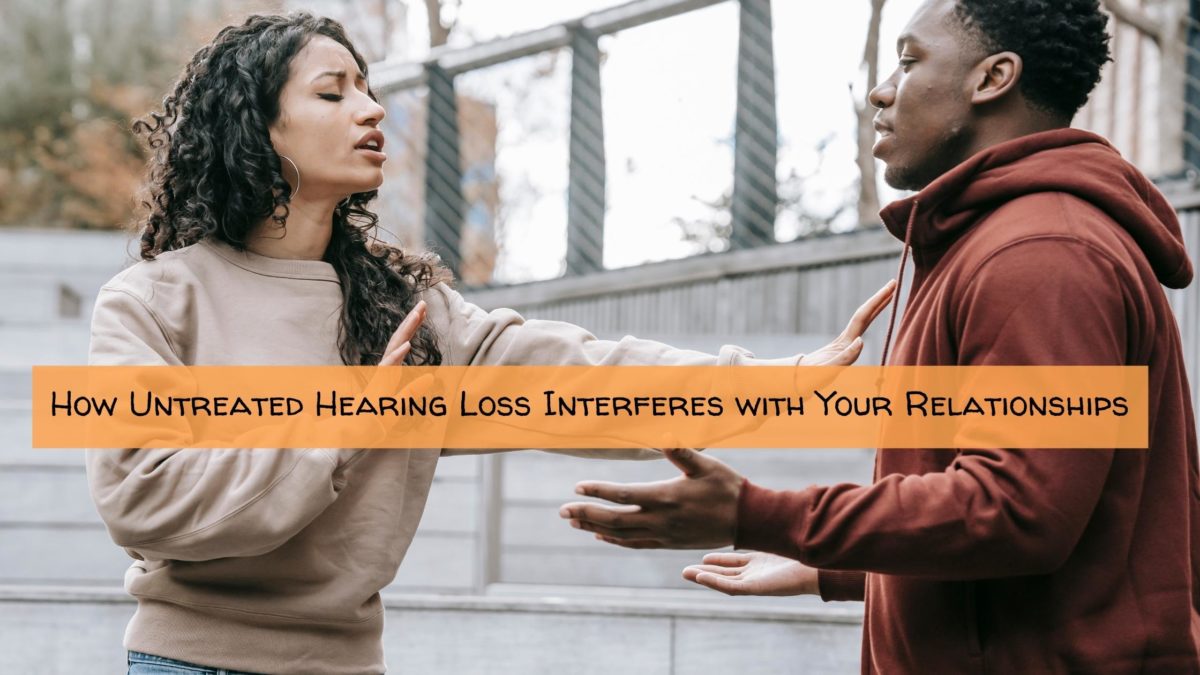This time of year, we all have an opportunity to reflect on the past. When we look back at the year, we might think of the relationships we have built with others and the fun times we’ve had together. When we look further back to the years gone by, we can see even more of these loved ones, friends, and connections and the times we’ve spent at holiday gatherings and new year’s festivities. When you consider these memories, can you recall any times when hearing loss caused a strain in your relationships? You might even remember relationships that were easier years ago, but they might have become difficult due to a communication breakdown. Indeed, healthy communication is the foundation of strong relationships, and we tend to use verbal conversation to forge these bonds. When untreated hearing loss gets in the way of communication, it can have a profound effect on your relationships. Let’s consider two of the ways that untreated hearing loss can interfere, as well as the steps you can take to get the treatment you need.
Practical Difficulties
When you have untreated hearing loss, you might face some practical difficulties as a result. Some simple conversations that are necessary to communicate information can feel like an obstacle course. Rather than getting the details, instructions, or facts, you need to proceed, you might find yourself facing a morass of confusion. This confusion is not only an issue for your own life moving forward but also for your relationships. The struggle to convey simple facts can make you feel frustrated and even angry. Your loved ones can feel this strife, as well, and the feedback loop of displeasure can escalate to arguments and barriers within your relationships. We build trust with others in several ways, but sharing the practical information of everyday life is one of the primary ways we learn to trust others.
Emotional Difficulties
The trust that we build with others through practical conversations is only the foundation of relationship strength. Beyond these quotidian concerns, we need to have an opportunity to disclose our innermost selves to others. By allowing ourselves to become vulnerable to others, we can build a bond that goes deeper than the surface level. However, conversation is one of the most important ways to build this emotional connection, and untreated hearing loss can get in the way of these bonds. When you find yourself unable to hear what others have to say about their emotional lives, you can make them feel as if their vulnerability is betrayed. Whether hearing loss means that you are misunderstanding them or simply unable to take note of the feelings they convey, something as straightforward as hearing loss can become a deeply difficult barrier in your closest relationships.
Finding Solutions
As you know, healthy communication is the foundation of a strong relationship. There are steps you can take as a person with hearing loss to overcome these difficulties. You can take some practical steps to communicate with others, whether that means writing down essential details or asking others to repeat themselves. You can take some steps to overcome emotional difficulties, as well. Often building strong emotional connections with others despite your untreated hearing loss will mean more conversation, including working through the emotional barriers that come up as a result of your loss.
Rather than allowing hearing loss to create these barriers, why not seek treatment in the first place? When you pursue treatment for hearing loss, you will be able to solve some of the relationship problems that have come about in the past. Hearing aids are remarkably able to fill in the gaps in conversation, alleviating the practical and emotional difficulties that came about.
The first step is to make an appointment for a diagnostic exam. The results of this hearing test will point us toward the right range of hearing aids to meet your needs. When you have hearing aids in place, you will not only find benefits for communication and relationships but also in terms of physical, mental, and cognitive health. Why not take this opportunity to take a step toward treatment? Your closest loved ones will thank you!

